Big Fish The Musical Review
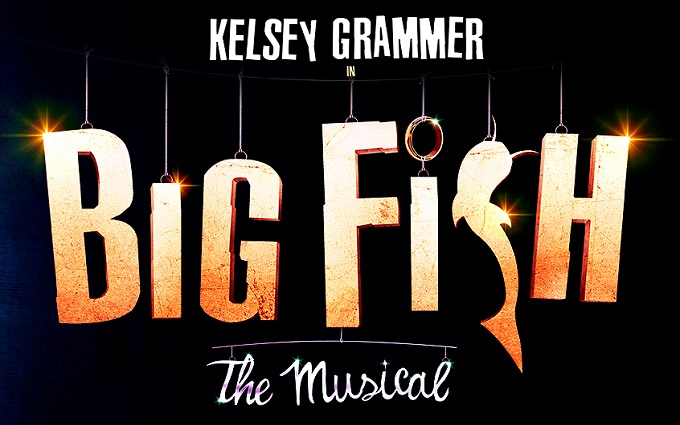
The Plot
Likeable charmer Edward Bloom is a romantic larger than life figure with a rare gift for storytelling, but as his son embarks on his own family life he struggles to separate fact from fantasy, hoping to figure out who his father really is beneath all his fantastical tales before it’s too late.
The Good
Frasier star Kelsey Grammer marks his west end debut with a pitch perfect performance as the affable older Edward Bloom. His deep charismatic voice, armed with a slight southern drawl is a perfect source of narration. He perfectly ties together the various strands of the story, intertwining fantasy and reality seamlessly as he sets the scene for the rest of the cast of young musical stars. It’s simply hard to imagine any actor better suited to the role as Grammer magnificently encapsulates the gruff bluster, flamboyant showmanship and poignant romanticism that makes Edward Bloom such an endearing hero.
Credit for the astonishing success of the show goes of course to the creative team and original author, but the impressively versatile cast deserve perhaps the biggest praise. Often playing multiple roles they make it easy for audiences to be swept away in the charming fantasy world of Edward Bloom. It would be unfair to single out individual cast members as each member of the well-chosen ensemble delivers flawless vocal and well-choreographed performances.
Perhaps the biggest compliment that can be paid to this new production is that it succeeds in adding new music and a fresh layer of charm to a much beloved and already familiar story. This new musical dimension lends itself perfectly to the oratory flare of Edward Bloom and his whimsical fables. While some of the songs inject added humour and playfulness, the show is at its absolute strongest when the music lends extra emotional weight to its more tender and heartfelt moments. Sincere well-crafted ballads massively amplifies the emotional impact of a story that deals with genuinely epic love, new beginnings and bittersweet endings. The show builds momentum steadily towards a truly tear stained and uplifting finale.
Aside from the poignant subtext of the show, what is perhaps most special and memorable is the unbridled sense of fun that the production offers delighted audiences. At times the production literally leaps out amongst the audience or drags them up on stage. It’s a fully immersive experience packed with all the very best that live theatre has to offer.
The Bad
Over familiarity with the original book and Tim Burton’s film adaptation will obviously rob this stage version of the element of surprise for some audiences. Particularly as most of the changes the musical makes to the story are simplifications to streamline proceedings for a more modest cast size. Likewise at times despite the innovative set design and costume work, it’s tough to entirely escape inevitable comparisons with the special effects infused magic of the big screen adaptation. Though the musical does the very best possible with minimal set dressings and a confined space, those that struggle to rely on the power of their own imaginations will occasionally notice those limitations. But this could be said of any live theatre and shouldn’t obscure the fact that this is a truly brilliant production.
The Ugly Truth
Big Fish is one of the most delightfully fun and poignant new musicals to grace a West End stage in quite some time. Capturing the very best of both the original book and the popular film adaptation the new musical version is a raucous crowd pleasing spectacle guaranteed to deliver laughs, smiles and more than a few tears. Make sure you don’t miss a golden opportunity to see this wondrous show in a magically intimate space, book your ticket today!
Review by Russell Nelson
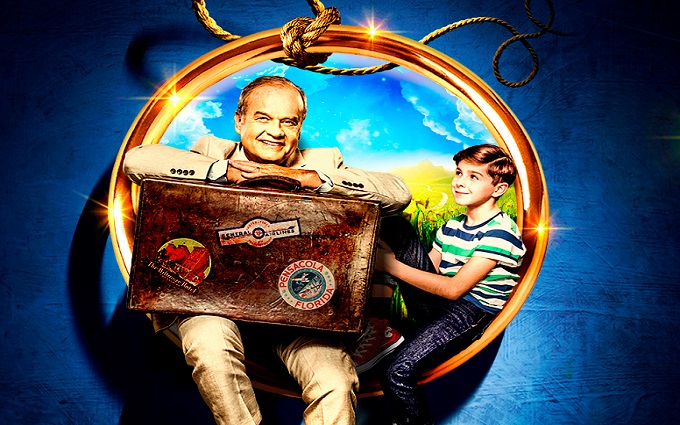
BAFTA Children’s Awards 2017 Winners List
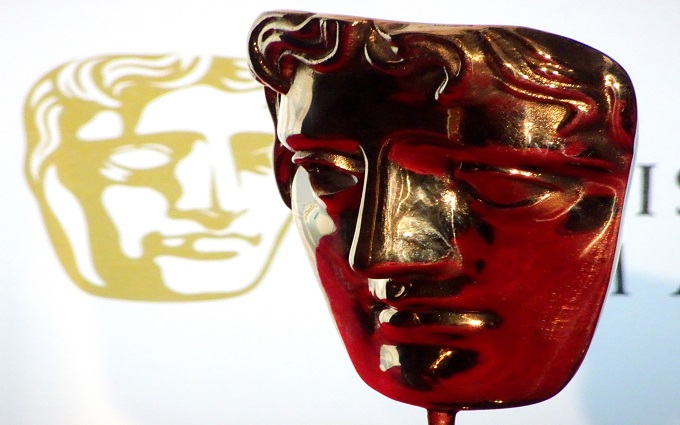
Winners for the British Academy Children’s Awards 2017 were announced over the weekend at a star studded ceremony in central London at the Camden Roundhouse. Full list of nominees in all categories listed below, with winners in bold.
SPECIAL AWARD
JACQUELINE WILSON
ANIMATION
THE AMAZING WORLD OF GUMBALL Ben Bocquelet, Mic Graves, Sarah Fell – Turner/Cartoon Network
REVOLTING RHYMES Production Team – Magic Light Pictures/BBC One
SHAUN THE SHEEP Will Becher, John Woolley, Richard Starzak – Aardman Animations/CBBC
WE’RE GOING ON A BEAR HUNT Production Team – Lupus Films, Bear Hunt Films, Walker Productions, Herrick Entertainment/Channel 4
CHANNEL OF THE YEAR
CARTOON NETWORK
CBBC
CBEEBIES
TRUETUBE
COMEDY
CLASS DISMISSED Sid Cole, Claire McCarthy, Tracey Rooney – CBBC Productions/CBBC
HANK ZIPZER Richard Grocock, Mark Oswin, Nick Collett – Kindle Entertainment with DHX Media, Walker Productions and Supported by Screen Yorkshire’s Yorkshire Content Fund/CBBC
HORRIBLE HISTORIES Production Team – Lion Television/CBBC
SO AWKWARD Production Team – Channel X North/CBBC
DRAMA
HANK ZIPZER’S CHRISTMAS CATASTROPHE Matt Bloom, Anne Brogan, Joe Williams – Kindle Entertainment with DHX Media, Walker Productions and Supported by Screen Yorkshire’s Yorkshire Content Fund/CBBC
HETTY FEATHER Matt Evans, Reza Moradi, David Collier – CBBC Productions/CBBC
JAMIE JOHNSON Production Team – Short Form Film Company/CBBC
LIKE ME Adam Tyler, Bob Ayres, Toby Lloyd – CTVC Ltd/TrueTube
ENTERTAINMENT
BEAR GRYLLS’ SURVIVAL SCHOOL Michael Kelpie, Phil Mount, Bear Grylls- Potato for ITV Studios/CiTV
THE DOG ATE MY HOMEWORK Production Team – BBC Children’s Scotland/CBBC
SAM &MARK’S BIG FRIDAY WIND-UP Gareth Edwards, Steve Ryde, John Payne – CBBC Productions/CBBC
SWASHBUCKLE Anna Perowne, Geoff Coward, Tony Grech-Smith – CBeebies Productions/CBeebies
FACTUAL
ABSOLUTE GENIUS MONSTER BUILDS Matt Knight, James Knight, Annette Williams – CBBC Productions/CBBC
INSIDE MY HEAD: A NEWSROUND SPECIAL Charlotte Ingham, Josh Gale – CBBC Productions/CBBC
MY LIFE: BORN TO VLOG Sarah Murch, Launa Kennett, Denis McWilliams – Blakeway North/CBBC
TO LIFE Production Team – CTVC Ltd/TrueTube
FEATURE FILM
KUBO AND THE TWO STRINGS Travis Knight, Arianne Sutner – Laika/Universal Pictures
THE LITTLE PRINCE Mark Osborne, Aton Soumache, Alexis Vonarb, Dimitri Rassam – ON Animation Studios and Netflix/Netflix
MOANA Ron Clements, John Musker, Osnat Shurer – Walt Disney Animation Studios/Walt Disney Animation Studios
SING Christopher Meledandri, Janet Healy, Garth Jennings – Illumination/Universal Pictures
GAME
MONUMENT VALLEY 2 Development Team – ustwo games/ustwo games
THE PLAYROOM VR Development Team – SIE Japan Studio, Team ASOBI!/ Sony Interactive Entertainment Europe
POKÉMON GO Development Team – Niantic/Pokémon
POKÉMON SUN & POKÉMON MOON Development Team – Game Freak/Pokémon, Nintendo
INDEPENDENT PRODUCTION COMPANY OF THE YEAR
BLUE ZOO ANIMATION STUDIO
KARROT ENTERTAINMENT
MAGIC LIGHT PICTURES
STRAWBERRY BLOND
INTERACTIVE
ADVENTURE TIME ‘I SEE OOO’ Production Team- Turner
THE GRUFFALO SPOTTER Development Team – Magic Light Pictures & Nexus Studios
HEY DUGGEE: WE LOVE ANIMALS Phil Hoskins, Keith Davidson, Peter Hickman – Scary Beasties Ltd and BBC Worldwide
VIRRY VR Martin Percy, Svetlana Dragayeva, Joanna Fogler – Fountain Digital Labs
INTERNATIONAL
AN AMERICAN GIRL STORY – MELODY 1963: LOVE HAS TO WIN Alison McDonald, Tina Mabry, Nicole Dow – Amazon Studios/Amazon
ASK THE STORYBOTS Evan Spiridellis, Gregg Spiridellis – JibJab Bros. Studios/Netflix
THE SNOWY DAY Production Team – Amazon Studios and Karrot Entertainment/Amazon
SPONGEBOB SQUAREPANTS Stephen Hillenburg, Vincent Waller, Marc Ceccarelli – Nickelodeon/Nicktoons
LEARNING
HISTORY BOMBS: ONLINE HISTORY RESOURCES Chris Hobbs, Ellie Rogers, Claire O’Brien – History Bombs/Historybombs.com
LIFESAVER VR Martin Percy, Yates Buckley, Andy Lockey – UNIT9
NUMBERBLOCKS Joe Elliot, Simon Taylor, Laura Annis – Blue Zoo Animation/CBeebies
SHIA // SUNNI Adam Tyler, Bob Ayres, Toby Lloyd – CTVC Ltd/TrueTube.co.uk
PERFORMER
ALHAJI FOFANA as Ryan in Screwball! – TrueTube
MILLIE INNES as Millie in Millie Inbetween – CBBC
PHIL FLETCHER as Hacker T Dog in CBBC Presentation – CBBC
SAVANNAH BAKER as Natalie in Screwball! – TrueTube
PRE-SCHOOL – ANIMATION
DIGBY DRAGON Adam Shaw, Chris Drew, Tom McDowell – Blue Zoo Animation/Nick Jr
HEY DUGGEE Grant Orchard, Janine Voong, Sander Jones – STUDIO AKA/CBeebies
PEPPA PIG Phil Davies, Mark Baker, Joris van Hulzen – Astley Baker Davies/Entertainment One/Channel 5
SARAH & DUCK Jamie Badminton, Sarah Gomes Harris, Tim O’Sullivan – Karrot Entertainment/CBeebies
PRE-SCHOOL – LIVE ACTION
APPLE TREE HOUSE Production Team – Five Apples Ltd/CBeebies
CBEEBIES STARGAZING: MISSION EXPLORE Katie Simmons, Tom Cousins, Anna Perowne – CBeebies Production/CBeebies
DO YOU KNOW? Romily Menzies, Sarah Trigg, Paul Kittel – 7Wonder/CBeebies
OUR FAMILY Sallyann Keizer, Ruth Mills, Luke Gallie – Sixth Sense Media Limited/CBeebies
PRESENTER
DR CHRIS VAN TULLEKEN AND DR XAND VAN TULLEKEN Operation Ouch! Hospital Takeover – CBBC
GEMMA HUNT Swashbuckle – CBeebies
MADDIE MOATE Do You Know? – CBeebies
SAM NIXON AND MARK RHODES Sam & Mark’s Big Friday Wind-Up – CBBC
SHORT FORM
CN BUDDY NETWORK – Production Team – Turner/Cartoon Network
THE HAPPOS FAMILY Production Team – Turner/Boomerang
MORPH Merlin Crossingham, Helen Argo, Peter Lord – Aardman Animations/Sky Kids
SHARE A STORY 2016 Production Team – CiTV/CiTV
WRITER
ADAM TYLER – Screwball! – TrueTube
JOE WILLIAMS Hank Zipzer’s Christmas Catastrophe – CBBC
PAUL ROSE, LUC SKYZ, MIKIS MICHAELIDES 4 O’Clock Club – CBBC
WRITING TEAM The Amazing World of Gumball – Cartoon Network
Darkest Hour Review TIFF 2017
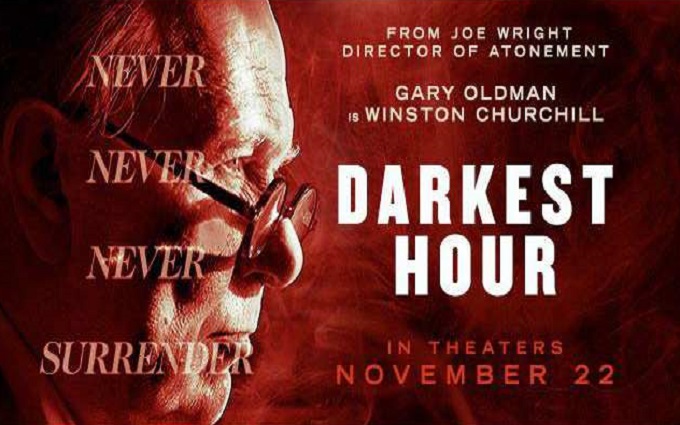
The Plot
As Western Europe teeters on the brink of collapse at the start of World War 2 popular political outsider Winston Churchill becomes the new British prime minister. During Britain’s darkest days Churchill must not only find a way to win over a reluctant political establishment but more importantly avoid total military destruction and inevitable Nazi invasion.
The Good
Gary Oldman reconfirms his long held status as one of the most versatile and compelling character actors with a performance that outshines even his elaborate physical transformation. Thanks to some flawless makeup and prosthetics wizardry Oldman is physically unrecognisable, literally becoming the iconic British leader. However what’s most impressive is how even underneath copious layers of makeup and bodysuits Oldman is able to deliver a subtle portrayal that goes well beyond Churchill’s jowl shaking oratorical skills.
Around Oldman director Joe Wright has assembled a fine cast of character actors who breathe further life into the tense political landscape of Britain on the brink in 1940. Ben Mendelsohn deserves special note for his portrayal of King George VI, a daunting prospect in the wake of Colin Firths Oscar winning version.
Director Joe Wright manages to create a sense of momentum and carefully crafts the full weight of historic significance resting on Churchill and Britain’s shoulders during these most perilous moment sin world history. Much like recent crowd pleasers Dunkirk and Their Finest, Darkest Hour is innately imbued with a swell of pride that lingers still today from the immeasurable bravery and idealism demonstrated by a small island nation that stood utterly alone against evil.
The Bad
Anyone with even a most basic grasp of 20th century history already knows the ultimate outcome of the Second World War and Churchill’s personal destiny as one of the most iconic leaders in modern history. In particular Christopher Nolan’s recent blockbuster reminder of the miraculous Dunkirk evacuation is also still overly fresh in people’s minds. The inevitability of Churchill’s success and Britain’s military survival essentially robs the film of much of the dramatic suspense it seeks to create.
Winston Churchill is one of the most visual and vocally distinctive figures of the 20th century, consequentially he has been immortalised in film and television by countless actors already including most recent efforts by Brian Cox and The Crown’s John Lithgow. Unfortunately this leave Oldman with little room left for fresh discovery. At this point the highest compliment possible for the capable Oldman is that he manages to avoid slipping into flamboyant caricature.
In truth Churchill has been so frequently idolised and scrutinised by books, television and film that it is now simply impossible for this film to create any genuine sense of discovery or fresh insight. Oldman’s portrayal of Churchill is restrained and nuanced but always identifiably familiar. More critical or exaggerated versions of Churchill that have appeared on screen at least had the excitement of controversy or cartoonish fun to offer.
The Ugly Truth
Gary Oldman’s physically transformative performance and a splash of patriotic pride manages to make some overly familiar historic material feel once more compelling if not exactly original or surprising.
Borg McEnroe Review TIFF 2017
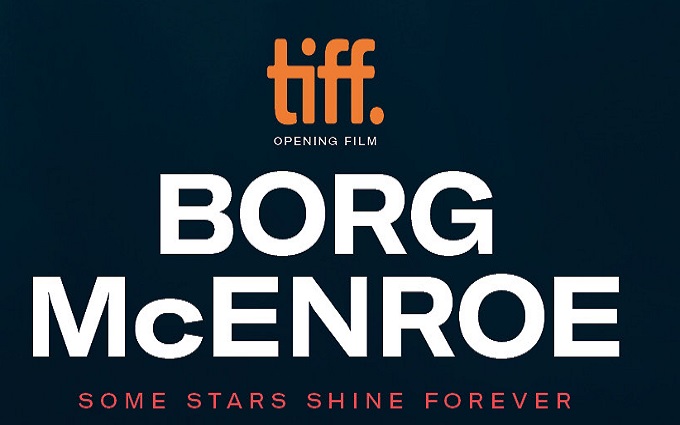
The Plot
Chasing a historic fifth Wimbledon title tennis superstar Bjorn Borg is set on a seemingly inevitable collision course with rising star and notorious bad boy John McEnroe. The pair’s contrasting styles of machine like cool and fiery tempered fury capture the imagination of the world, while off court they both battled similar demons of perfectionism and anxiety.
The Good
Borg McEnroe is a film which takes one of sport’s most iconic rivalries and turns it into a finely crafted examination of two seemingly polar opposite champions. The film follows each of these familiar figures throughout their early lives, offsetting their most famous Wimbledon encounter with the shared pain and passions that brought them both inextricably to the same court.
Shia Labeouf is a near perfect fit for John McEnroe, the infamously flamboyant and often furious tennis superstar. Labeouf is an actor with a raw talent that lends itself well to the role, but it’s also fair to say that his own off screen reputation for eccentric outbursts lends a tangible extra dimension to his performance. It’s hard to imagine another actor more implicitly suited to the role of a gifted talent that is to some extent eclipsed by notoriety, whether deserved or not. However despite drawing some inevitable parallels, Labeouf’s performance is brilliant on its own merits. His McEnroe is by turns explosively competitive and vulnerably fragile, drawing an effective portrait of both McEnroe’s infamous on court persona and the real man behind it.
Sverrir Gudnason does a remarkable job of embodying Bjorn Borg, an awesome and deeply enigmatic sporting great. Much like Labeouf his performance is by turns fuelled by convincing ferocity, self-doubt and stoic determination. Gudnason also works especially well alongside Stellan Skarsgard, exploring the complex emotional relationship between the young superstar and his coaching father figure Lennart Bergelin. Skarsgard on typically fine form gives voice to much of what the film has to say about the true burdens inflicted by ambitious sporting greatness.
Gudnason and Labeouf deserve special praise in particular for their physical feats in recreating the astonishing match play when they do inevitably meet on court. Every move and moment of each piece of tennis action in the film feels utterly real and never anything less than a genuine brutal sporting battle.
Even those audiences that don’t quite feel enthusiastic about tennis encounters in real life will find that with the added layers of drama and tension, seeing this particular match up brought to life on screen is a captivating experience.
The Bad
It’s rare to find a film without fault, but Borg McEnroe could not easily be improved upon. Obviously for some audiences highly familiar with tennis history the film’s closing scenes might have a little less tension, but overall the film does an excellent job of keeping the focus on the inner struggles of two great players, rather than merely recreating one classic on court encounter.
The Ugly Truth
Borg McEnroe is a worthy opening film for this year’s TIFF, easily surpassing sports genre clichés to deliver a finely balanced portrait of two iconic champions. Both leads deserve mighty praise for performances that do justice to the greatness of the tennis titans they portray. Avid tennis fans and the uninitiated alike will both mighty enjoy this captivating biopic.
Review by Russell Nelson
TIFF 2017 Awards Winners Announced
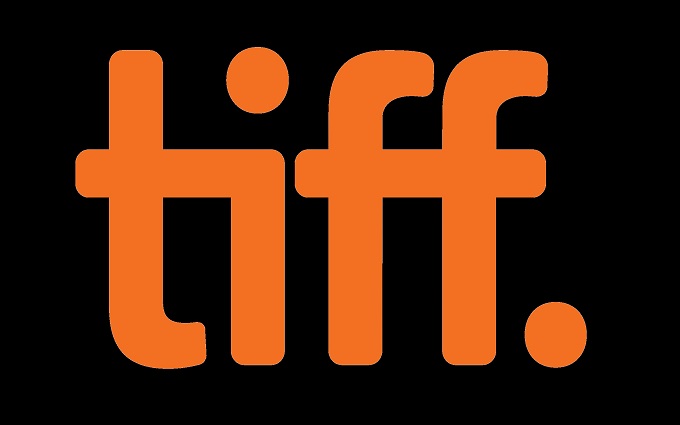
The Toronto International Film Festival announced its award winners at the closing ceremony at TIFF Bell Lightbox today, hosted by Piers Handling, CEO and Director of TIFF, and Cameron Bailey, Artistic Director of TIFF. To watch the presentation, visit tiff.net/ceremony. The 42nd Festival wraps up this evening.
The short film awards below were selected by a jury comprised of Marit van den Elshout, Head of CineMart at the International Film Festival Rotterdam; award-winning filmmaker Johnny Ma (Old Stone); and Cannes 2017 Art Cinema Award winner Chloé Zhao (The Rider).
IWC SHORT CUTS AWARD FOR BEST CANADIAN SHORT FILM
The IWC Short Cuts Award for Best Canadian Short Film goes to Marc-Antoine Lemire’s Pre-Drink. The jury remarked the film “is a monumental yet intimate portrayal of a woman in transition. Lead by the towering performances of the film’s two actors, both of who are worthy of receiving their own awards. The jury were especially taken by the leading actress who gives one of the best performances we saw in the Short Cuts programmes. The 2017 Short Cuts jury honors Pre-Drink for Best Canadian short film.”
The award offers a $10,000 cash prize, made possible by IWC Schaffhausen.
IWC SHORT CUTS AWARD FOR BEST SHORT FILM
The IWC Short Cuts Award for Best Short Film goes to Niki Lindroth von Bahr’s The Burden (Min Börda). The jury remarked, “Whimsical but tragic, imaginative and just plain weird, this is exactly what one can expect from a Scandinavian musical with fish in bath robes singing out their existentialist crisis. This is a film that stands out in this program and any film program it will ever be part of.” The award offers a $10,000 cash prize made possible by IWC Schaffhausen.
The jury gave honourable mentions to Matthew Rankin’s The Tesla World Light (Tesla: Lumière Mondiale) and Qiu Yang’s Xiao Cheng Er Yue (A Gentle Night).
The Canadian awards below were selected by a jury comprised of Mark Adams, Artistic Director of the Edinburgh International Film Festival; Canadian documentarian and Hillman Prize winner Min Sook Lee (Migrant Dreams); and artist and filmmaker Ella Cooper, who is also the founder of Black Women Film! Canada.
CITY OF TORONTO AWARD FOR BEST CANADIAN FIRST FEATURE FILM
The City of Toronto Award for Best Canadian First Feature Film goes to Wayne Wapeemukwa’s Luk’ Luk’l. The jury remarked, “The award goes to a striking debut film that disrupts borders – of form and content and suggests new cinematic territories.This beautifully realized film offers a unique Canadian perspective, made with real compassion, insight and remarkable characters from Vancouver’s East Side.” This award carries a cash prize of $15,000, made possible by the City of Toronto.
The jury gave honourable mention to Sadaf Foroughi’s Ava.
CANADA GOOSE AWARD FOR BEST CANADIAN FEATURE FILM
The Canada Goose Award for Best Canadian Feature Film goes to Robin Aubert’s Les Affamés. The jury remarked, “This year the Canada Goose Award for Best Canadian Feature Film goes to a hybrid art-house film that proved to be something of a revelation. Wonderfully scripted and perfectly cast, this film managed the rare feat of featuring genuinely interesting and well-rounded characters; surprising dramatic and comedic moments with well thought-out multi-generational female roles (who were totally badass, I might add) while also dealing with poignant and contemporary issues, set against a striking rural backdrop and hundreds of ‘ravenous’ zombies.”
This award carries a cash prize of $30,000 and a custom award, sponsored by Canada Goose.
The jury gave honourable mention to Simon Lavoie’s The Little Girl Who Was Too Fond of Matches (La petite fille qui aimait trop les allumettes).
THE PRIZES OF THE INTERNATIONAL FEDERATION OF FILM CRITICS (FIPRESCI PRIZES)
The Festival welcomed an international FIPRESCI jury for the 26th year. The jury members comprised of jury president Jonathan Rosenbaum (USA), Robert Daudelin (Canada), Martin Horyna (Czech Republic), Ivonete Pinto (Brazil), Marietta Steinhart (Austria), and Jim Slotek (Canada).
Prize of the International Federation of Film Critics (FIPRESCI) for the Discovery programme is awarded to Sadaf Foroughi for Ava.
Prize of the International Federation of Film Critics (FIPRESCI) for Special Presentations is awarded to Manuel Martín Cuenca for The Motive (El Autor).
NETPAC AWARD
As selected by a jury from the Network for the Promotion of Asian Pacific Cinema for the sixth consecutive year, the NETPAC Award for World or International Asian Film Premiere goes to Huang Hsin-Yao’s The Great Buddha+.
Jury members include jury chairperson Rashmi Doraiswamy (India), Jian Hao (China), and Savine Wong (Canada). The jury remarked, “The NETPAC Jury awards The Great Buddha+ for depicting the interface between the haves and have-nots, with black humor and style, innovating with noir in representing the social reality of Taiwan today.”
TORONTO PLATFORM PRIZE PRESENTED BY AIR FRANCE
This is the third year for Platform, the Festival’s juried programme that champions directors’ cinema from around the world. The Festival welcomed an international jury comprised of award-winning filmmakers Chen Kaige, Małgorzata Szumowska, and Wim Wenders who unanimously awarded the Toronto Platform Prize, presented by Air France, to Warwick Thornton’s Sweet Country.
“This is a spiritual epic taking place in 1929 in Australia’s Northern Territory,” said the jury in a statement. “It is a great saga of human fate, and its themes of race and struggle for survival are handled in such a simple, rich, unpretentious and touching way, that it became for us a deeply emotional metaphor for our common fight for dignity.
Speaking about their deliberations, the jury added: “We saw 12 films from all over the world that took us into very different universes of the soul and to extremely different places on our planet. We were thankful to be able to see these films and we very much appreciated that actually exactly half of them were made by women. TIFF is leading the way, we feel.”
“As we only had one award to give, we had to be quite radical. We also limited ourselves to only one special mention, even if other films might have imposed themselves for best acting, writing or directing.”
Awarding a special mention to Clio Barnard’s Dark River, the jury said: “This film, deeply rooted in the Yorkshire countryside, convinced us, as its characters and actors, its photography, its story and its sense of place were all so much ONE, so utterly believable and controlled, that we were totally taken by it.”
The Toronto Platform Prize offers a custom award and a $25,000 cash prize, made possible by Air France.
New this year, the Festival presents a free screening of Toronto Platform Prize winner Sweet Country at TIFF Bell Lightbox at 8:30 pm on September 17. Tickets will be available on a first-come, first-served basis beginning at 6:30pm.
GROLSCH PEOPLE’S CHOICE AWARDS
This year marked the 40th year that Toronto audiences were able to cast a ballot for their favourite Festival film for the Grolsch People’s Choice Award. This year’s award goes to Martin McDonagh for Three Billboards Outside Ebbing, Missouri. The award offers a $15,000 cash prize and custom award, sponsored by Grolsch. The second runner-up is Luca Guadagnino’s Call Me By Your Name. The first runner-up is Craig Gillespie’s I, Tonya.
The Grolsch People’s Choice Midnight Madness Award goes to Joseph Kahn’s Bodied. The second runner-up is Craig Zahler’s Brawl in Cell Block 99. The first runner-up is James Franco’s The Disaster Artist.
The Grolsch People’s Choice Documentary Award goes to Agnès Varda and JR’s Faces Places. The second runner-up is Morgan Spurlock’s Super Size Me 2: Holy Chicken! The first runner-up is Long Time Running directed by Jennifer Baichwal and Nicholas De Pencier.